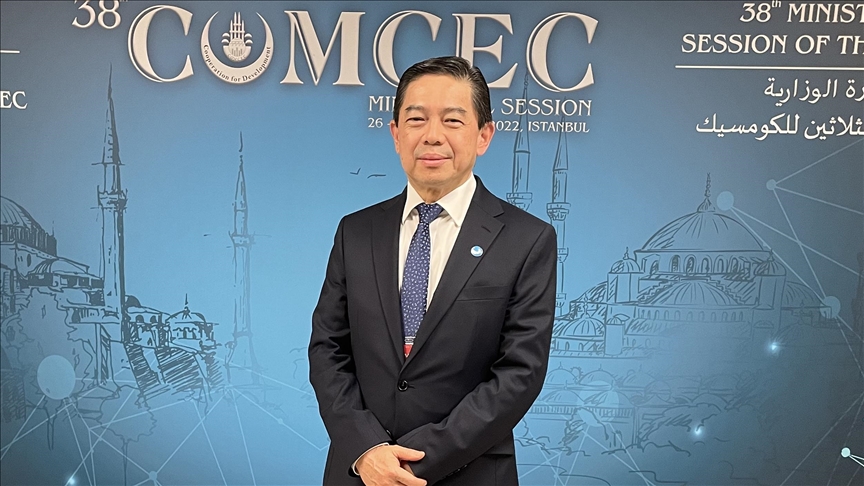ISTANBUL
Brunei Darussalam and Türkiye can make use of their “very good relationship” to exchange ideas and experiences in the post-pandemic world, a senior official from the Southeast Asian nation said.
“Brunei Darussalam and Türkiye obviously enjoy a good relationship and we can make use of this through an exchange of ideas and experiences,” said Haji Mohd Amin Liew Bin Abdullah, minister at the prime minister’s office in Brunei Darussalam.
Abdullah was speaking to Anadolu Agency on the sidelines of the four-day 38th meeting of the Standing Committee for Economic and Commercial Cooperation (COMCEC) in the Turkish business capital Istanbul.
He said Turkish businesses, including airlines, are investing in Brunei Darussalam while there are investments in Turkish Stock Exchange from the Southeast Asian nation.
“We are continuously enhancing this bilateral relationship (through) people-to-people exchange and… business to business exchanges,” he said.
Türkiye in 1984 established diplomatic relations with Brunei Darussalam, home to some 450,000 people, and opened its embassy in the capital Bandar Seri Begawan in 2013.
The embassy of Brunei Darussalam in Ankara opened the following year.
While the exchange of people and trade is picking up between the two nations, Türkiye has offered scholarships to several students from Brunei for higher education at Turkish universities.
Digitalization
Abdullah said platforms like COMCEC provide opportunities to Brunei Darussalam and Türkiye such as holding trade fairs and the sharing of experiences, “especially after the COVID-19 pandemic.”
“Many countries have done many things” in response to the pandemic, he said, adding: “and there are many lessons we learn from that and we can share with each other.”
“Because certainly we may be facing another pandemic somewhere down the road … It is important to keep sharing our experience with each other,” he said.
Pointing to how the pandemic boosted digitalization in daily public life, Abdullah said it “helped a lot of people to get on with their day-to-day life and also to small business to try to survive the pandemic crisis.”
“We should build on this work that we have done on digitalization to try to continue to enhance on what we do because (it) will continue to improve efficiency and improve competitiveness in many of the businesses,” he said.
Abdullah said there are challenges to the process of digitalization as well including “vulnerable people” as well as older people “who may not have access to digitalization or access to technology.”
“How do we make sure that they are also on board?” he asked, adding that the digitalization process should be “inclusive of all segments of society.”
On changing geopolitics in the Asia-Pacific region, he said the Association of Southeast Asian Nation (ASEAN) “is a very dynamic region with 10 countries coming together.”
“We represent 660 million, so by no means is this a small size,” he said. “If you look at last few decades, the (ASEAN) economies have continued to stay very vibrant.”
Referring to various dialogue partners of ASEAN, including Canada, the US, and China, he said: “We continue to work with countries within and outside this region.”
Türkiye has been a sectoral dialogue partner of ASEAN since 2017.
“We believe in multilateral trading systems so we continue ensure that our businesses continue to strive,” he said, adding that digitalization “is very important” priority for ASEAN besides the green economy.

